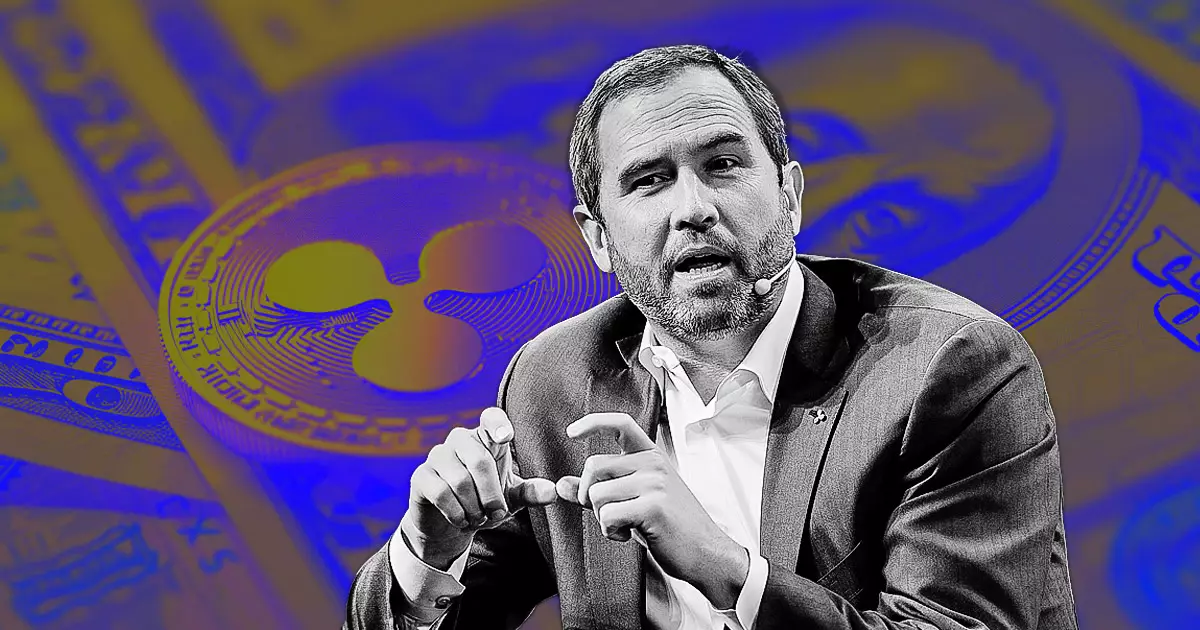The ongoing legal struggle between the Securities and Exchange Commission (SEC) and Ripple Labs has taken a new turn, as the SEC has chosen to appeal a recent federal court ruling that has garnered considerable attention within the cryptocurrency community. Filed on October 2, 2024, with the Second Circuit Court of Appeals, the notice of appeal reflects the regulator’s desire to contest elements of a mixed ruling delivered in August. The decisions reached in this case are not merely pivotal for Ripple Labs and its executives but have broader implications for the entire cryptocurrency sector.
The SEC’s lawsuit against Ripple Labs, initiated in December 2020, centered on allegations of a $1.3 billion unregistered securities offering associated with the sales of XRP. Ripple’s leadership, notably CEO Brad Garlinghouse and CLO Stuart Alderoty, expressed profound disappointment over the SEC’s strategic decision to appeal. They argued that the SEC was reiterating a lose-lose situation, one that not only drained resources but also undermined the advancements made for clarity in the regulatory status of cryptocurrencies.
The court’s August ruling was, in many respects, a mixed bag. While it declared that programmatic sales of XRP on cryptocurrency exchanges did not constitute securities law violations—a decision hailed by some as a significant victory for the crypto community—it simultaneously mandated a sizeable financial penalty for Ripple concerning its institutional sales of XRP, which amounted to $728 million in unregistered securities transactions.
This ruling resulted in a $125 million penalty against Ripple, which, although lower than the original $2 billion sought by the SEC, still cast a long shadow over Ripple’s operations. Ripple and its supporters interpreted the court’s determination favorably, framing it as an essential step toward establishing understandings within an otherwise nebulous regulatory environment. Yet, the SEC interpreted the ruling as conflicting with long-standing Supreme Court precedents regarding securities offerings. This fundamental difference in interpretation underscores the ongoing tension between regulatory bodies and emerging blockchain technologies.
The SEC’s recent decision to appeal sent ripples through the cryptocurrency market, resulting in an approximate 9% decline in XRP’s value, positioning it around $0.54 as per data from CryptoSlate during the hours following the announcement. Such fluctuations highlight the fragile nature of market confidence in the face of regulatory uncertainty. With XRP currently holding the seventh spot by market capitalization—$30.88 billion—investors remain acutely aware of the potential for significant volatility as the case unfolds.
Garlinghouse’s frustration reflects a broader sentiment across the cryptocurrency sector regarding the SEC’s approach to regulation under current Chair Gary Gensler. He criticized the agency for what he views as a “litigation warfare” strategy that wastes taxpayer resources and dissuades innovation. The argument that the SEC has “lost on everything that matters” emphasizes a growing narrative that some industry leaders believe the agency’s heavy-handed tactics may backfire and impede the healthy growth of the crypto ecosystem.
Both Garlinghouse and Alderoty have expressed their resolve to contest the SEC’s appeal vigorously. They view the court’s earlier decisions not merely as victories for Ripple but as triumphs for the crypto industry as a whole. Alderoty noted the court’s findings of “no victims or losses” in this case, further complicating the SEC’s narrative around the necessity of punitive damages. In light of the regulatory climate, Ripple is also contemplating a cross-appeal, potentially intensifying the legal battle.
As the case heads to the appeals court, the broader implications of this ongoing saga remain to be seen. The outcome of this legal confrontation holds the potential to reshape regulatory attitudes towards cryptocurrencies, influencing how other blockchain companies approach compliance and operational strategies. In essence, this case does not merely represent a conflict between a corporation and a regulatory body; it encapsulates a pivotal moment for the entire cryptocurrency industry, reflecting the sector’s struggle for clarity and legitimacy in a rapidly evolving financial landscape.














Leave a Reply